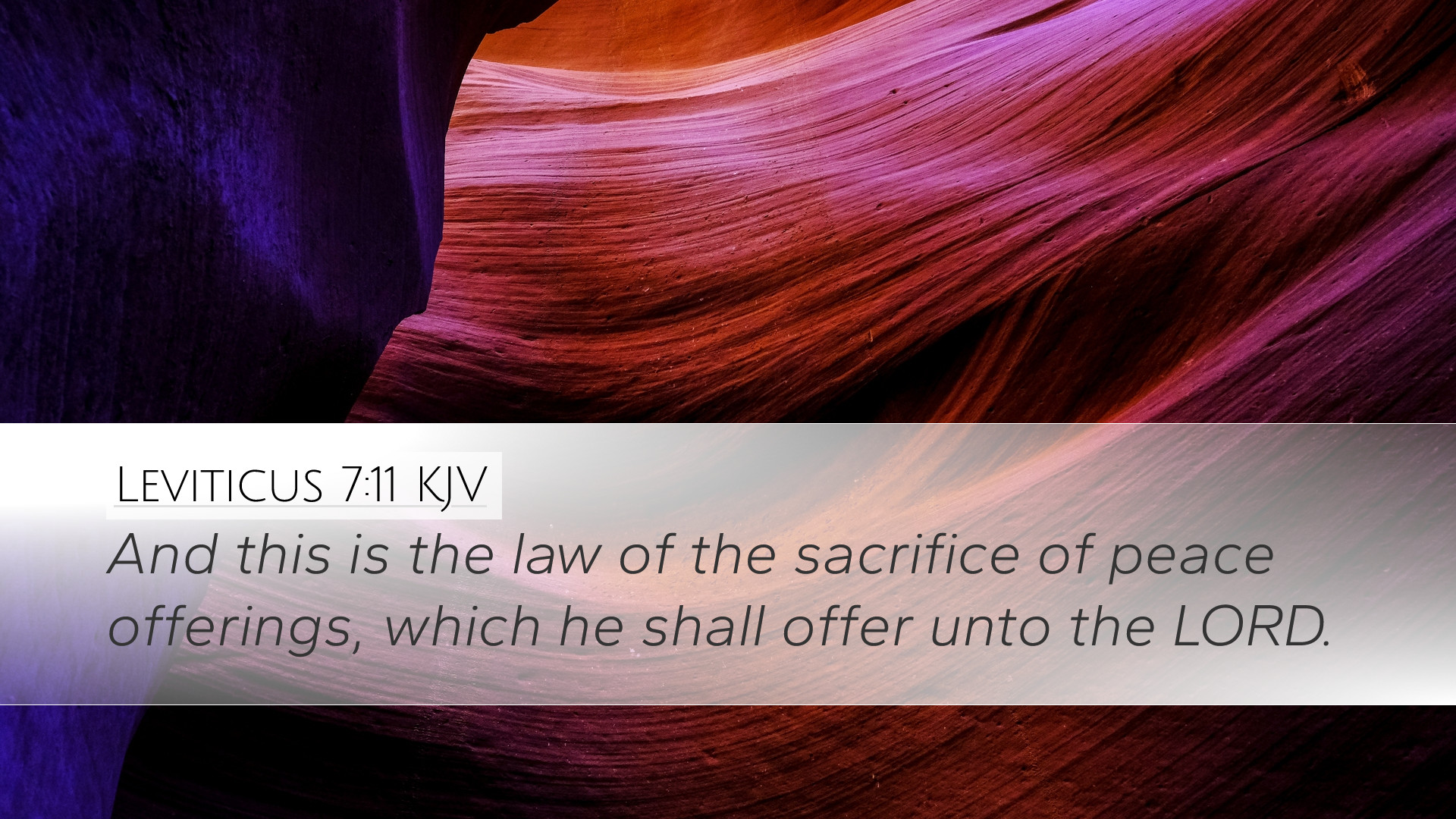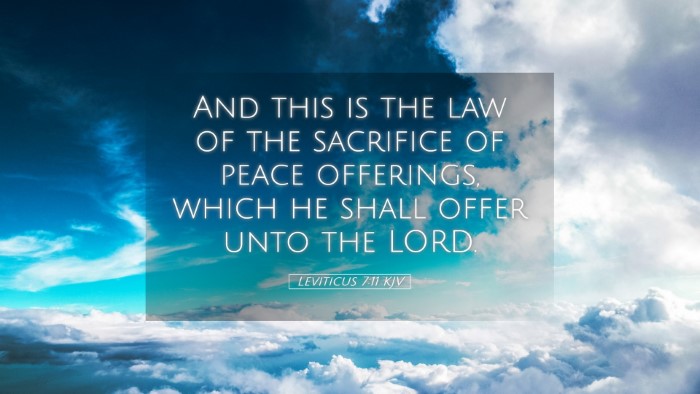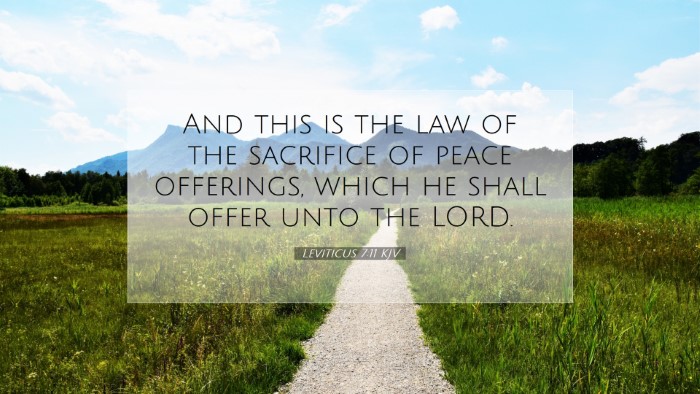Commentary on Leviticus 7:11
Leviticus 7:11 states: "And this is the law of the sacrifice of peace offerings, which he shall offer unto the LORD." This verse introduces the regulations surrounding the peace offerings, which form a significant part of the sacrificial system in ancient Israel.
Context and Significance
The peace offerings, also known as fellowship offerings, were a unique category among the sacrifices. They symbolized communion and peace between God and His people, illustrating a deep relational aspect of worship. The heart of these offerings is the joyful acknowledgment of God’s blessings in the life of the worshiper.
Commentary Insights
Matthew Henry's Commentary
Matthew Henry notes the significance of the peace offering being a voluntary act, reflecting the worshiper's gratitude towards God. He emphasizes that while sacrifices were often associated with atonement, peace offerings were primarily acts of thanksgiving. This reflects the believer's joy and peace derived from their relationship with God.
Henry further explains that peace offerings were intended to be shared with the family and the community, promoting fellowship and unity among the people of God. He highlights that this sharing aspect points towards the communal nature of worship, where individual thanksgiving contributes to the joy of the whole community.
Albert Barnes' Notes
Albert Barnes elaborates on the typological aspects of the peace offering, suggesting that it prefigures the ultimate peace Christ provides through His sacrifice. He asserts that just as the peace offering was a celebration of God's provision, so too is our acknowledgment of Christ's atonement a source of joy and reconciliation.
Barnes also draws attention to the specific regulations given regarding the peace offerings. He underscores that these laws not only detail the manner of sacrifice but also reflect God's desire for His people to approach Him in a manner that is orderly and reverential, thus establishing a pattern for worship that transcends mere ritual.
Adam Clarke's Commentary
Adam Clarke considers the peace offering as a means for the worshiper to enter into a state of peace with God. He remarks on the symbolism of the offering, where a portion of the sacrifice was consumed by fire and the rest shared among the priests and the offerers. This division symbolizes God’s acceptance and the mutual participation in fellowship that comes from such offerings.
Clarke further elucidates that the 'law' outlined in this verse serves as a guiding principle for understanding how we can offer ourselves to God wholeheartedly, creating a parallel in the New Testament context where believers are called to present their bodies as living sacrifices.
Theological Implications
Exploring the theological dimensions of Leviticus 7:11, it becomes clear that peace offerings established a model for understanding divine-human relationships. The emphasis on communal eating signifies that God's blessings are not only individualistic; rather, they are meant to be a source of mutual joy among believers.
From a New Testament perspective, the concept of peace offerings resonates with the doctrine of reconciliation found in Christ. The apostle Paul encapsulates this in Romans 5:1: "Therefore being justified by faith, we have peace with God through our Lord Jesus Christ." Thus, the peace offering foreshadows the ultimate reconciliation that believers experience through Christ.
Practical Applications for Ministry
- Encouragement of Community Worship: Churches should prioritize creating an environment that fosters communal worship and fellowship, akin to the peace offerings where joy is shared.
- Understanding Sacrifice: Ministry leaders can emphasize the significance of offerings in worship, promoting a culture of gratitude and thanksgiving among their congregants.
- Equipping for Peace: Pastoral care must include teaching about the peace that comes through Christ, encouraging believers to actively seek reconciliation with God and each other.
Conclusion
Leviticus 7:11 encapsulates vital principles of worship - gratitude, community, and reconciliation. Insights from Matthew Henry, Albert Barnes, and Adam Clarke allow us to connect the ancient practices of Israel with the profound spiritual truths revealed in the New Testament. The law of the peace offerings teaches us to celebrate the presence of God in our lives and to cultivate a spirit of thankfulness and peace within our communities.


